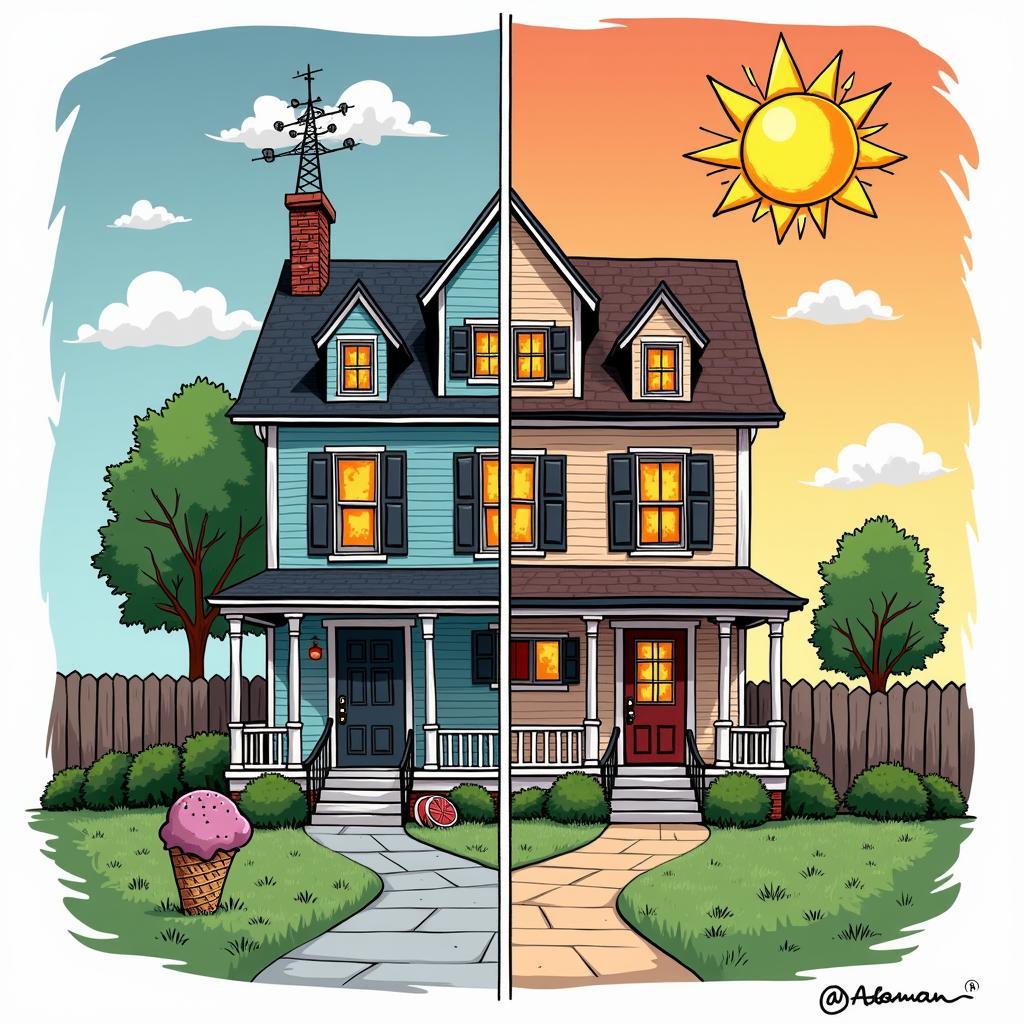Correlational Vs Experimental Research: two powerful tools in the paranormal investigator’s arsenal. Both methods seek to understand relationships between variables, but they go about it in distinctly different ways. Understanding these differences is crucial for discerning fact from fiction in the world of the unexplained.
Exploring the Correlation: Patterns in the Paranormal
Correlational research examines the relationship between two or more variables without manipulating any of them. It seeks to identify patterns and associations, revealing whether changes in one variable coincide with changes in another. For example, a paranormal researcher might investigate whether reported ghost sightings correlate with fluctuations in electromagnetic fields (EMF). A positive correlation would suggest that as EMF levels increase, so do ghost sightings, while a negative correlation would indicate the opposite. correlational research vs experimental research However, it’s crucial to remember that correlation does not equal causation. Other factors could be at play.
Correlation Does Not Imply Causation: A Paranormal Perspective
Imagine a study finding a correlation between the number of haunted houses and ice cream sales. Does this mean haunted houses cause people to crave ice cream? Or vice-versa? Unlikely. A more plausible explanation is that both are influenced by a third variable: hot weather. This is a crucial concept in paranormal research. Just because two phenomena occur together doesn’t mean one causes the other.
 Correlation vs. Causation in Paranormal Research
Correlation vs. Causation in Paranormal Research
Experimental Research: Manipulating the Paranormal
Unlike correlational research, experimental research involves manipulating one or more variables (independent variables) to observe their effect on another variable (dependent variable). This allows researchers to establish cause-and-effect relationships. For instance, a researcher could create two groups of participants: one exposed to high EMF levels and another exposed to normal EMF levels. Then, they could measure the participants’ reported paranormal experiences (the dependent variable). experimental research vs correlational research If the group exposed to high EMF reports significantly more paranormal experiences, it suggests that EMF might influence such perceptions. This controlled approach offers stronger evidence of causality.
Controlling the Variables: A Key to Scientific Rigor
“In experimental research, controlling extraneous variables is paramount,” says Dr. Amelia Spectre, a leading expert in parapsychology. “This allows us to isolate the specific effects of the manipulated variable, ensuring the observed changes are genuinely due to the experimental manipulation and not other factors.”
When to Use Which Method in Paranormal Investigations
The choice between correlational and experimental research depends on the research question. types of research in research methodology Correlational research is useful for exploring initial relationships between variables, especially when ethical or practical limitations prevent manipulation. Experimental research is preferred when establishing cause-and-effect relationships is essential.
Correlational vs Experimental Research: A Powerful Combination
Often, the most effective approach involves a combination of both methods. what is the difference between correlational research and experimental research Initial correlational studies can identify potential relationships, which can then be investigated further through controlled experiments. This integrated approach offers a more comprehensive understanding of the complex phenomena at play in the paranormal world.
“The synergy between correlational and experimental research is invaluable in our quest to unravel the mysteries of the unknown,” adds Professor Victor Geist, a renowned paranormal historian. “By combining these powerful tools, we can move beyond mere speculation and towards a more evidence-based understanding of the paranormal.”
In conclusion, understanding the difference between correlational vs experimental research is paramount for navigating the often-murky waters of paranormal investigation. By utilizing both methods strategically, we can shed light on the unexplained and move closer to understanding the true nature of the supernatural.
FAQ
- What is the key difference between correlational and experimental research?
- Why is correlation not the same as causation?
- Can experimental research be used in paranormal investigations?
- What are the limitations of correlational research in the paranormal field?
- How can both methods be used together to enhance Paranormal Research?
- What are some examples of correlational research in paranormal investigations?
- What are some examples of experimental research in paranormal investigations?
When you need assistance, please contact us at Phone Number: 0904826292, Email: research@gmail.com Or visit us at No. 31, Alley 142/7, P. Phú Viên, Bồ Đề, Long Biên, Hà Nội, Việt Nam. We have a 24/7 customer support team.